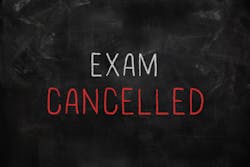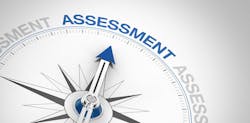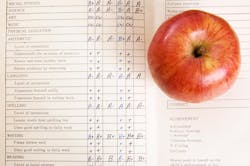UK exams for summer 2021 - The (consultation) results are in

Some of the data collected by this provider is for the purposes of personalization and measuring advertising effectiveness.
Some of the data collected by this provider is for the purposes of personalization and measuring advertising effectiveness.
Some of the data collected by this provider is for the purposes of personalization and measuring advertising effectiveness.


For the second year running, all GCSE and A level examinations have been cancelled across the UK. The cancellation was announced on 4th January, following months of repeated assurances that this year's examinations would proceed as normal. In contrast to last year, however, IGCSE exams will be go ahead as normal. Read on to see how student assessments will be managed in 2021.
Following a consultation process by the Ofqual, in conjunction with the Department for Education, a new assessment framework has been agreed. Read on to find out how this will be managed.

For GCSE, AS and A levels, teachers will assess a student's performance based on the topics covered in lessons to determine their grades. This will encompass a range of evidence which relates to lesson content and covers both in-classroom and via remote learning.
Teachers will also be able to use evidence gathered throughout the student's studies to inform their judgement. This may include previously completed assignments and coursework, mock examinations, homework or in-class tests and could also be based in-part on new assessments created by exam boards, based largely on past exam papers. These additional assessments are not compulsory, so this will vary between schools.
The plan is for grades to be issued as late in the academic year as possible, so it is important for students to continue to engage fully in their lessons and teachers will inform students when set work will be taken into consideration as part of their grading.
For GCSE, AS and A level art and design, grades will be based on a student's portfolio only, whether this is finished or not. For GCSE English language, GCSE modern foreign languages and A level sciences (biology, chemistry, physics and geology), school or colleges are expected to submit separate grades or results for spoken language or practical skills tested.

There is not currently much information available on how assessments will work for students learning remotely. It is possible that examinations will take place online or they could be held physically at a recognised testing centre.
We will continue to update this article with any news.

AS and A levels results are expected on 10th August, with GCSE results following on 12th August.

Students unhappy with their grades would first appeal to their school or college, who would then carry out checks, to make sure that an administrative error had not been made. If an error is found, the school or college can submit a revised grade for the examination board to consider. If no error is found, the school or college will appeal to the exam board on the student’s behalf.

Colleges and universities are likely to be more flexible in their requirements this year and allow entry to students that do not meet their traditional entry criteria while respecting the grades that have been given.
Students progressing from GCSEs on to the A level or IB programmes may sit additional entrance tests, which are often carried out through online testing platforms. This will vary between different schools and colleges.
Universities will likely place a greater emphasis on a student's acquired knowledge and extra curricular activities than in a normal year, to gain a more rounded picture of a student's achievements before making offers.

On this week's episode, Cory is joined by returning guest, Zeba Clarke, Deputy Head Academic at King Edward's Witley. We look at the GCSE and A level assessment proposals made by Ofqual in their recent consultation.